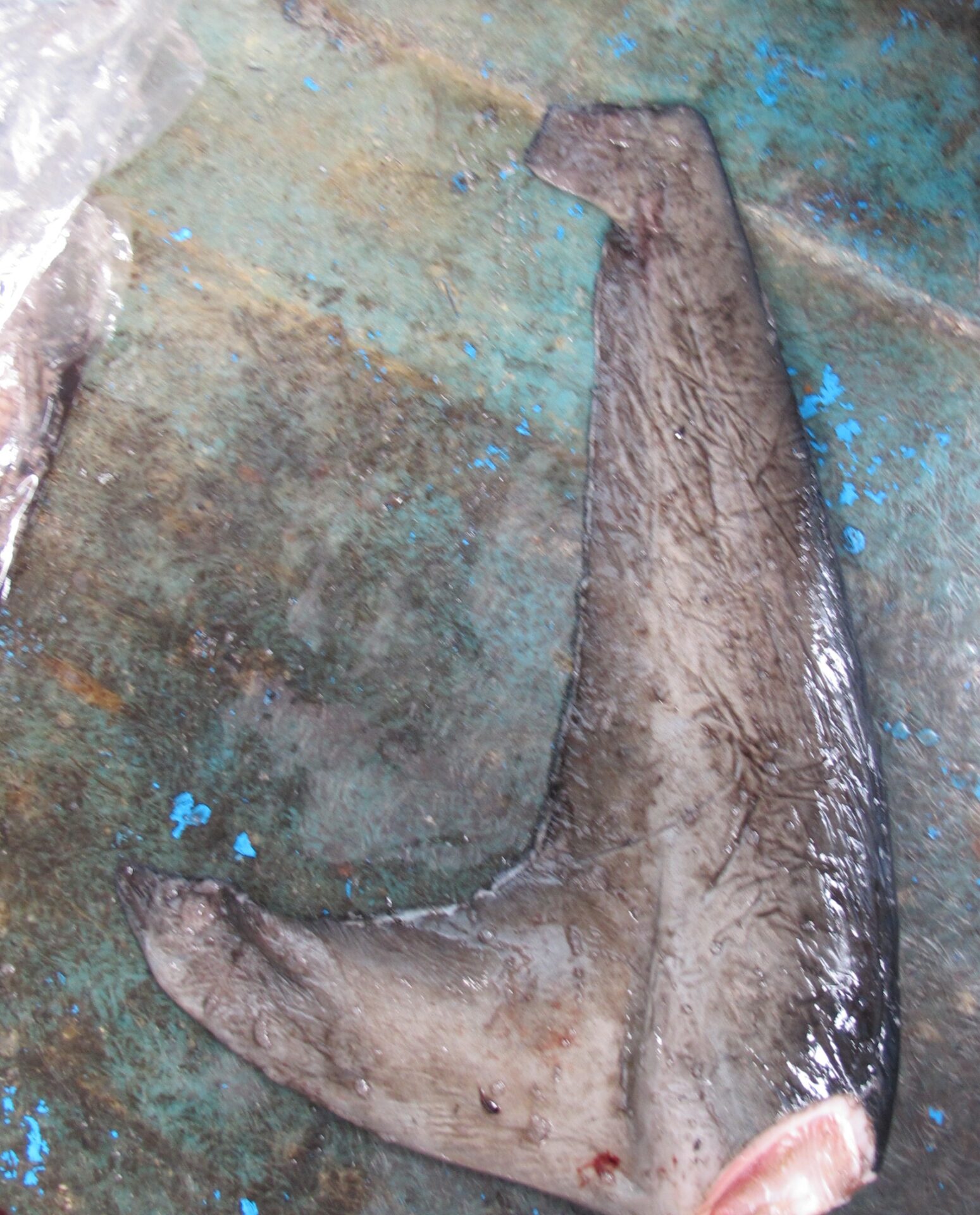Shark fishing in Vietnam: The impact of law enforcement
Vietnam has a long history of catching and consuming sharks. Despite our understanding of the importance of shark conservation, we have not managed shark fishing well. Recently, a number of factors have led to a stricter approach to shark management. Therefore, shark fishing has become less common, and in most cases, fishermen tend to keep their activities a secret. To fulfil our project duty, it is important to collect shark samples from survey areas. Through this work, we have the opportunity to interact with fishermen and traders, gaining insight into the current state of shark fishing in Vietnam.
Our mission is to try to collect as many samples as possible in the region. However, we underestimated the difficulty of this task, despite meticulously reviewing the landing information for each collection site. In central Vietnam, shark-catching fishing boats typically land around the middle of the lunar months. Often, these boats arrive at night, leaving us with no choice but to wait. However, negotiating with the captain and staff to collect samples is also challenging. To prevent IUU and protect marine resources, recently, the Vietnamese government has enhanced law enforcement in shark fishing. The government has issued a prohibited list, which includes several species. As a result, local fish management agencies intensify their monitoring efforts and inspect boats upon arrival. As a result, we find it challenging to ask fishermen to share shark samples with us. During our discussions with fishermen, we have come to understand that they often lack knowledge about which species are completely prohibited, and which ones are permissible to catch. In many cases, sharks are bycatch from fishing activities. Given their concern over being fined, they were not ready to share samples. We needed to convince them that our efforts were not related to the fines. We are merely striving to enhance the comprehension of shark diversity.
The work led to the collection of hundreds of shark samples. The collected samples will be an important resource for our further work in DNA, and will provide good evidence for shark conservation. This indicates the effectiveness of law enforcement, but it is still not enough, and the exploitation of endangered species still occurs. Therefore, Vietnam still requires significant efforts to conserve sharks. More research on shark diversity, distribution, and biology is necessary. This will provide the scientific basis for the management of sharks. In addition, improvement of understanding and awareness of fishermen and traders is key to achieving long-term conservation of sharks, as well as endangered species.

A shark fin collected from central Vietnam in this project. Photo © Lam Xuan Tran
